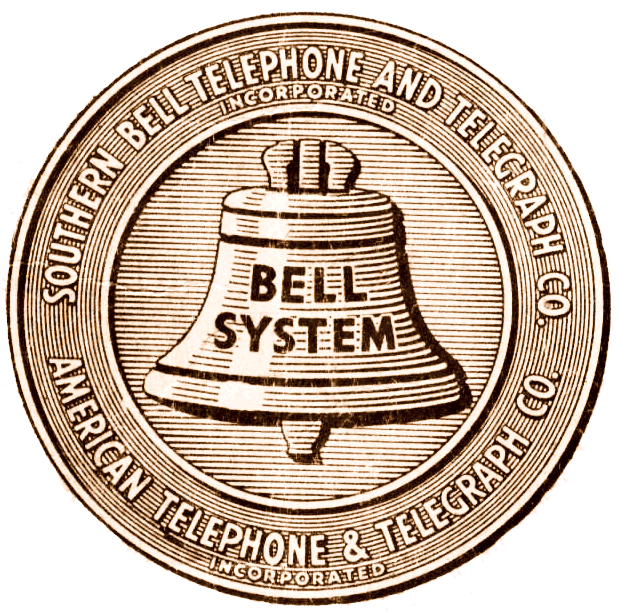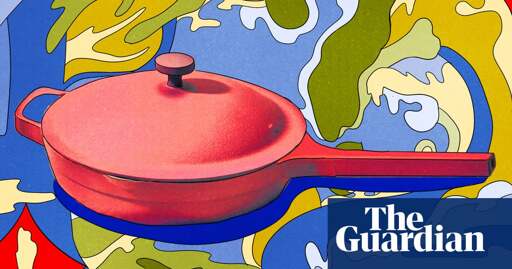… the pans are likely not “nontoxic” some independent testing and research suggests. Nor are they even “ceramic” – at least not in the way the public broadly thinks of ceramics. Now, regulators are investigating some of the pan sellers’ claims.
The only three kinds of metal pots, pans, and skillets that will ever enter my kitchen: Cast Iron, Carbon Steel, and Stainless Steel. And pure too, not clad or coated in anything, not finished with anything other than a basic seed oil seasoning.
Stainless steel and cast iron is the way
I’ve retired the last of the non-stick cookware I had. It’s all iron, cast and stamped, and stainless now.
The reason I haven’t bought an instant pot or airfryer is that I haven’t found non plastic coated ones.
I went through that recently with air fryers. There’s a few out there.
Such as, if you dont mind?
Check out Fritaire. Glass bowl and stainless. I don’t have one yet but it looks like a good option.
Finding a non teflon coated aluminium pot with a heat capturing coil for lightweight hiking is impossible last I looked.
Just removing teflon from stuff is a huge pain too, it’s dangerous to burn it off, I might try and sand blast the Teflon off the one I have. I have to research how bad that is, probably makes way too much toxic microparticles. But it really shouldn’t be so hard to find food appliances and cookware not coated in this crap.
There are great alternatives to Jetboil and other heat exchanger systems. Some systems are also cheaper and much lighter. I highly recommend checking out Gearskeptic’s Backpacking Stove Efficiency series.
Excluding the rather silly clip on ring thing, all the TX type pots look to be plastic coated. Possibly not the kettle but I want access from the top. The Optimus terra range is great but again, stupid Teflon coatings on everything.
Also to the temp drop issue with gas, I didn’t watch the whole thing but a strong recommendation is to get a burner that can also run on kerosene for cold weather trips. Even propane sucks in the cold, liquid fuel will run rings around it.
Yeah, there’s a lot of pots that are coated and it sucks. However, the tests and methodology are not tied to them. It’s more about how to select different stoves and pots (e.g. lid or no lid?) than a particular product pick. For me, I didn’t even buy a new kit. All I did was learn how to optimize my existing kits.
Regarding temperature, I luckily haven’t had too much of an issue. Gas gets to sleep with me or hang out in my jacket if it’s that cold out. No need for white gas stoves, yet! Maybe someday if the very high mountains call to me.
I don’t know how people can stand cast iron pans. I know they’re supposed to be great for cooking but I always feel like you can never really get them all the way clean.
Clean is a misnomer. We’re covered in bacteria and filled with bacteria. The air around us is thick with yeast. The second you wash any pan it is immediately reinnoculated with stuff around it. If you throw the concepts of brewing and canning at clean and you’ll find that nothing that we have is clean.
The bar for cookware is safe and doesn’t impart bad flavors to the food.
But this isn’t to say that you should or have to use it, But you ask why the rest of us do, It’s because it’s as clean as is necessary to cook great safe food.
I hear ya. I don’t mean clean as in sterile, just seems like you can never get all the grease off of them. They always seem like they’re covered in a film of old cooking oil.
Nah, have you owned one?
If I cook something super greasy in one, like bacon or a burger, its completely okay to use a little bit of dawn to help remove the grease, I’ve done it plenty of times and it doesnt injure the pan.
For most applications, I just use coarse salt, a softer steel wool, and hot water to clean my cast iron after cooking. The pan doesn’t feel greasy, and if it does, a splash of dawn dish soap does the trick. Just heat the pan to dry it.
More often my cast iron needs to be oiled, (I’ve been liking avocado oil lately) but you want to leave the thinest layer on the cooking surface as possible. It’s not grease, just seasoned.
a little bit of dawn to help remove the grease,
I absolutely don’t baby mine. If a little salt will get it good, that’s what it gets. If I have something more difficult, soap and a scrubbie, if that fails, I’ll go all the way up to steel wool if I need to. If the cure starts to look a little ratty or start flaking, I just strip it in lye, de-rust it in vinegar, oil it, call it a hot dog day and fire up the grill to re-cure it. Comes out like magic every time.
A high quality cast iron pan is smoother and easier to clean out.
But if you want the best no muss no fuss option, go with carbon steel. It’s pretty easy to season, high quality pans and skillets come pre-seasoned and ready to go right out of the box.
If your pans are overly rough and have build up, they aren’t. Your pans should be smooth and if you scratch or wipe them should leave no to little residue. Look up how to resurface your pan if you are having trouble getting to clean.
After resurfacing you can wash with some soap water and a sponge. If you need so get some more stubborn spots off you can use a would scrubber. Personally I just hit it with some stainless steel lightly and season often with flaxseed oil. A clean pan should appear slightly water repellent when fully cooled. Water should bead off the surface. If it’s not it’s a sign that your seasoning is gone or your pan is dirty
Really need regulatory action on this. People have no idea.
You won’t be seeing this in the US, EVER. Too much money in politics
While the current regulatory environment is very…discouraging, it’s not impossible, particularly if individual states take action.
This is an area where anything less than proactive regulation should be unacceptable… your attitute of “it is technically possble” is how you now have a dictator in charge of government
“The companies won’t tell the public what else is in the pans, and their formulas are shielded by confidential business information laws, making it very difficult to verify their claims.”
I’d think the answer to this should be super simple… Investigators go to the factory and demand the Material Safety Data Sheets.
They don’t have an MSDS? Shut that shit down.
Virtually all my cookware is enameled cast iron since I found the Le Creuset outlet store and 30% to 60% off deals. :) I do have a seasoned carbon steel wok and full ceramic bakeware though!
I also have a le creuset enameled cast iron, but for some reason I don’t think I’m using it correctly. I find too often that food is sticking to it. I have tried lots of different things, but non seem to work. Honestly I think the only thing left to try is using a bigger stove maybe? But thats not so easy haha
But what are you doing, how are you using it?
It’s a skill that takes practice and experience more than any golden tidbit of knowledge. Food is wide and varied, what works for one thing won’t work for all.
There are lots of general pointers, use more oil or, make sure the pan is hot first etc etc.
One of the biggest misconceptions that people have from Teflon is food sticking and releasing and worrying about that. With Teflon, at least when it’s good and new, nothing ever sticks, at any point, ever. This is not true of anything else. Your steak will stick, for a while, and then it will let go once the protein has cooked a bit. Your pancakes will need to cook for a while before you can get them to release from the pan etc.
Part of the skill is the implements you use and learning to release various foods from the surface. I like a wooden spatula for bulky things, but I also have a thin polyamide spatula for trickery stuff. The sharp edge on that helps a lot without damaging the pan. You can also use temperature changes to get food to release.
Lastly, sometimes some food sticks. Don’t sweat it. It’s still edible, don’t let it ruin your meal and learn as you go.
I make sure the pannis always hot first, but maybe I could be using more oil, I generally try to use as little as possible as I don’t wanna over do it.
And maybe I should get some new spatulas aswell. These I have are some shitty old plastic ones
I’m not the person you asked but using more fats can definitely help, because the pan is cast iron it gets very hot so watching the temperature of your pan should really help. Food that is wet from water, like rehydrated hash browns is one I’ve found that’s bad for this, will especially burn and stick. A little sticking of food is still to be expected if you are cooking foods that have a tendency to stick, it’s not a true “non stick pan” but it’s pretty close
I might be using too little fats like oil/butter, but I really try to not over use it.
Most foods cook fine, but I especially have trouble with scrambled eggs. But I guess it’s a “wet” good like your hash browns. Maybe I should buy a different kind of pan for that
Just use stainless steel and learn how to cook your food
Learning when the pan is hot enough more Like, but yes.
Sainless is non stick when its ripping hot
The problem will go away when the current administration further cuts consumer protections and health oversight.
They were also shitty pans. Just stick with cast iron or stainless steel.
I got a couple of carbon steel pans. The upkeep is similar to cast iron but much lighter / easier to handle. I reach for it 90% of the time.
Yeah I would get one if they didn’t cost a million dollars and I didn’t already have too many pans.
They cost practically nothing when you consider that you can’t ever wear one out.
Cast iron and stainless steel also basically never wear out. My cast iron pan is over 100 years old.
Ss pans can’t stay seasoned, though. You have to redo it every time you cook. Carbon steel allows for some non stick build up.
Yeah you don’t season stainless steel. You have to heat it up enough to make use of the Leidenfrost effect if you want true non-stickability. It just depends on how you use it.
Cast iron is better in the way it gets it’s non-stickability from its seasoning. Which is why I use it more often than my stainless steel if that’s important in what I’m cooking.
Totally would love a carbon steel btw. I know they’re like a blessed child between a cast iron and a stainless steel. Plz send me one for free por favor.
You can’t cook with the Leidenfrost effect though… no heat will conduct into the food!
The point of oils or melted fat when cooking is partially to increase the conduction of heat into the food.
They sell for super cheap at Asian grocery stores. I got one for like $35 CAD.
Edit: Oh actually although cheap, the ones you find at asian stores will mostly be woks which dont work well unless you have a gas stove so keep that in mind.
I do have a gas stove but shouldn’t they work on induction as well?
The issue is that they are curved so only a small part of it would make contact with the stove. There are special induction + wok combos where the induction surface is also curved but most people will not have that.
Ah makes sense.
Bonus for carbon pans over stainless steel is that carbon pans hold their seasoning better than ss. You can’t really keep ss pans seasoned. They have to be re-coated every time before using. Outside of “looking pretty” there’s no reason to own ss pans over carbon. Cast iron stays seasoned best, of course, but they’re heavy as shit.
Your not supposed to season stainless steel pans, it doesn’t work like that, just preheat it for a bit and do the water drop test to confirm before cooking, you will still have a little bit of sticking, but that’s how you get the tasty brown stuff. I was gonna buy a carbon steel pan for backup but I didn’t feel like dealing with the worry about seasoning and potential rust if not seasoned after use
I prefer cast aluminum cookware. Handles high-heat, can’t rust, cleans super easily, and almost definitely accelerates my inevitable Alzheimer’s.
All of this early research, led to suspicion that aluminium from various sources, such as cookware, foods, vaccines and even water, could be linked to Alzheimer’s. However, through continued investigation, research has disproved this early evidence, and aluminium hasn’t since been found to be a direct cause of Alzheimer’s disease.
– https://www.alzheimersresearchuk.org/news/aluminium-and-alzheimers/
studies have failed to confirm any role for aluminum in causing Alzheimer’s. Almost all scientists today focus on other areas of research, and most experts believe aluminum does not pose any threat.
– https://www.alz.org/alzheimers-dementia/what-is-alzheimers/causes-and-risk-factors
I probably already read that and forgot because of the aluminum
One of the reasons I moved away from cast aluminum is they can’t handle the heat. Over time they tended to warp pretty badly. I always cook at a fairly low setting so I don’t know if my ex was forgetting to turn off burners or something, but the pans warped.
But the major reason is I only see them with non-stick interior, which starts flaking off after ten years
I’m expecting my stainless and cast iron to be the last cookware I need to buy
#BuyItForLife
I have a cast aluminum lefse griddle that I use for almost everything. I’ve had that for a couple of years and use it nearly every day, sometimes twice a day. When it comes to cleanup, I throw cold filtered water on it while it’s still hot, scrape anything left with my metal spatula, and then wait for it to heat up again before shocking it again with cold water and wiping it down with a bar towel. Once a year, I use actual soap or cleaning solution to get any grime off the bottom or the edges.
I also have a cast aluminum caldero that I mostly use to make corn bread, but I might use as a dutch oven or whatever. Cleaning is similar: hot, splash, scrape, hot, splash, wipe.
Just raw cast aluminum getting the shit abused out of it, and it keeps working like a charm.
That’s really cool. I haven’t seen anything like that Caldero since a college roommate many years ago.
It’s great for making fideo! I don’t use it to make fideo, but it’s great if you do!
Does anyone have a source saying that ingesting cast iron seasoning (burnt fat) is ok?
I just want to make sure I’m not just picking my flavor of cancer. I assume burnt food is better than PFAS (not forever)
The seasoning on cast iron is polymerized oil and it’s chemically bonded to the iron. You’re only really going to be removing the seasoning if you’re using abrasives or scrubbing too hard with steel wool or something like that.
https://www.seriouseats.com/the-truth-about-cast-iron#toc-myth-4-dont-scrub-with-soap
Any loose bits of black gunk that are coming off while you’re cleaning it with a sponge or a scrubby are just burnt food.
Good luck finding an article on point for this sort of thing. I looked for a bit to try to find something to link here, but couldn’t find anything that directly addressed cooking oil polymers. I just wanted to say that you won’t necessarily be eating burnt fat. Seasoning cast iron/carbon steel isn’t necessarily about burning fat onto the surface of the pan, since what you’re trying to do is create a polymerized layer of cooking oil on the surface of the pan. Polymerization can occur well below the smoke point of an oil, you just apply heat to speed up the process. Applying too much heat can actually be counterproductive, since the polymer will carbonize, but you’ll probably never reach this point unintentionally without leaving a pan on the burner unattended. Under normal cooking conditions, any heat degradation of the polymer layer will be made up for with the fresh cooking oil that you’ve used, refreshing the seasoning. If you’re going to use cast iron or carbon steel, you should thoroughly clean any burnt on bits after cooking with dish soap. Modern dish soaps don’t have lye, so you won’t be doing any damage to the seasoning and you’ll only be left with polymerized oil, not burnt fat.
If you do decide to do more research and find something on point, please do share! I wasn’t able to find anything that explicitly pointed towards it being unhealthy, and I’m alright with making a somewhat informed assumption of the risk.
Just use stainless steel and carbon steel if you are worried about that, I honestly use my stainless pans 70% of the time, carbon steel like 20% and my cast iron is that last 10% when cast iron is actually beneficial
Huh, I’m opposite.
- I use cast iron 70% of the time because foods I cook go in a skillet and browned foods taste good
- stainless 20% of the time when there’s a reason (like simmering curry or any acidic stew). Or pasta, because the spaghetti pot is stainless
- carbon steel 1-2/week - gotta use it to cook breakfast on weekends
- Teflon occasionally (unless you count my rice cooker, but that’s on the list to replace with stainless steel when it dies)
It’s likely not ok. But focusing on every source of carcinogen in your life won’t stop you from getting cancer eventually. Eating healthy and using Teflon pans will probably give you a better life than eating like shit on cast iron. No real way to know the future though.
Tritan is a good example of this hyper focus on not consuming bad stuff. It has 3 components, 2 of which imitate estrogen. It’s the plastic that replaced polycarbonate. Which is derived from BPA, but in reality contains very little after you wash it once.
So… the crispy bits that result from the Maillard Reaction (the TASTY crispy bits!) may be a known problem because it produces acrylamide.
https://pubmed.ncbi.nlm.nih.gov/24875401/
“Based on the evidence of acrylamide carcinogenicity in animals, the International Agency for Research on Cancer has classified acrylamide as a group 2A carcinogen for humans.”
Hexclad just sent us their sign up for their class action lawsuit. Yeah it was PTFE all along. And when you rub PTFE and any kind of spatula, you’re getting PTFE in your food.
You only need 4 kinds of pans
- stainless steel or stainless clad aluminum
- cast iron
- enameled cast iron
- carbon steel
sooooo… is my Stanley Tucci Greenpan pan gonna kill me? article didn’t divulge the saucy details
Enamelware chads stay winning
Sooo… this is as close to a product recommendation as you can get on The Guardian without reverting to ads.
The Xtrema ceramic pans seem really enticing.












